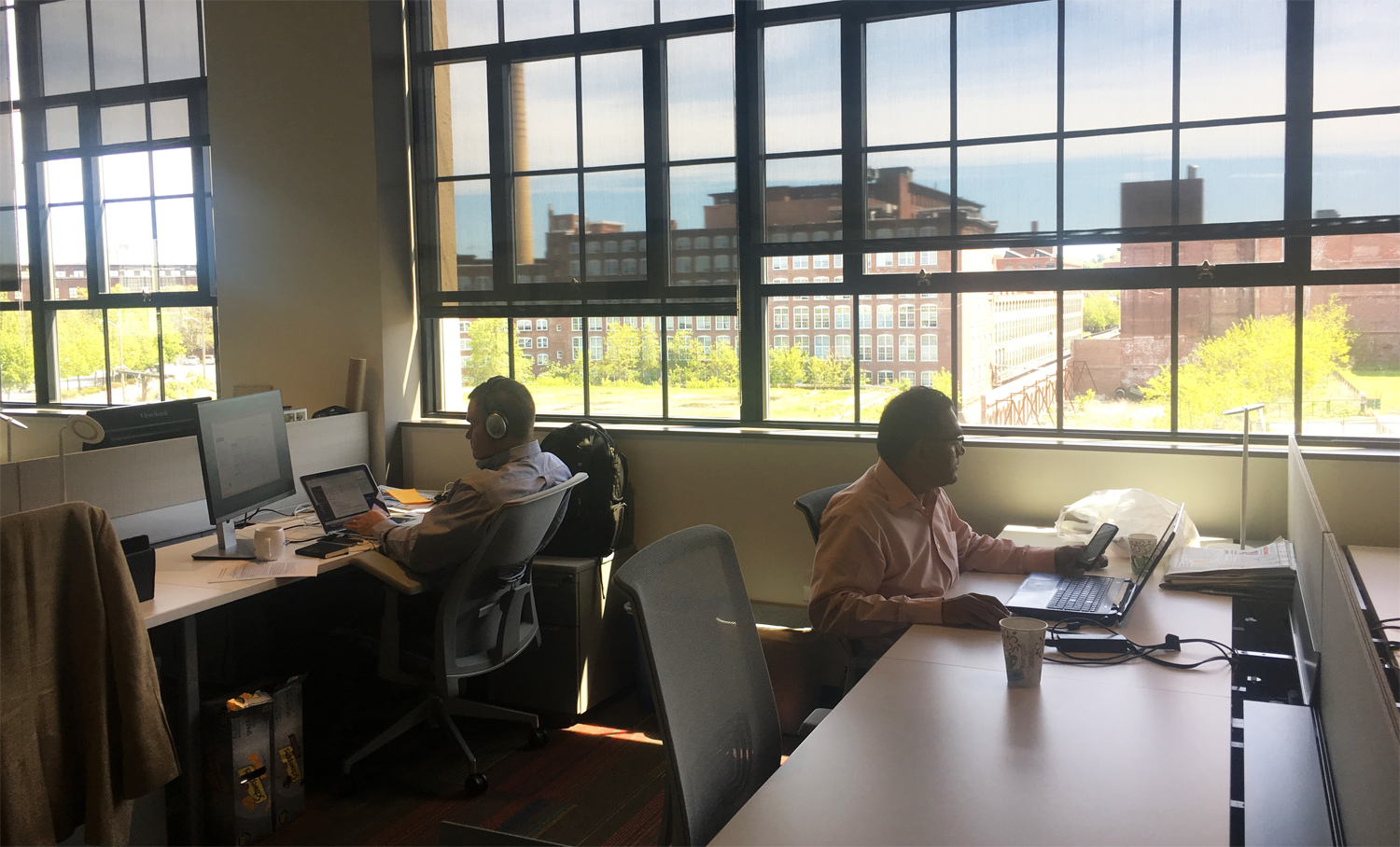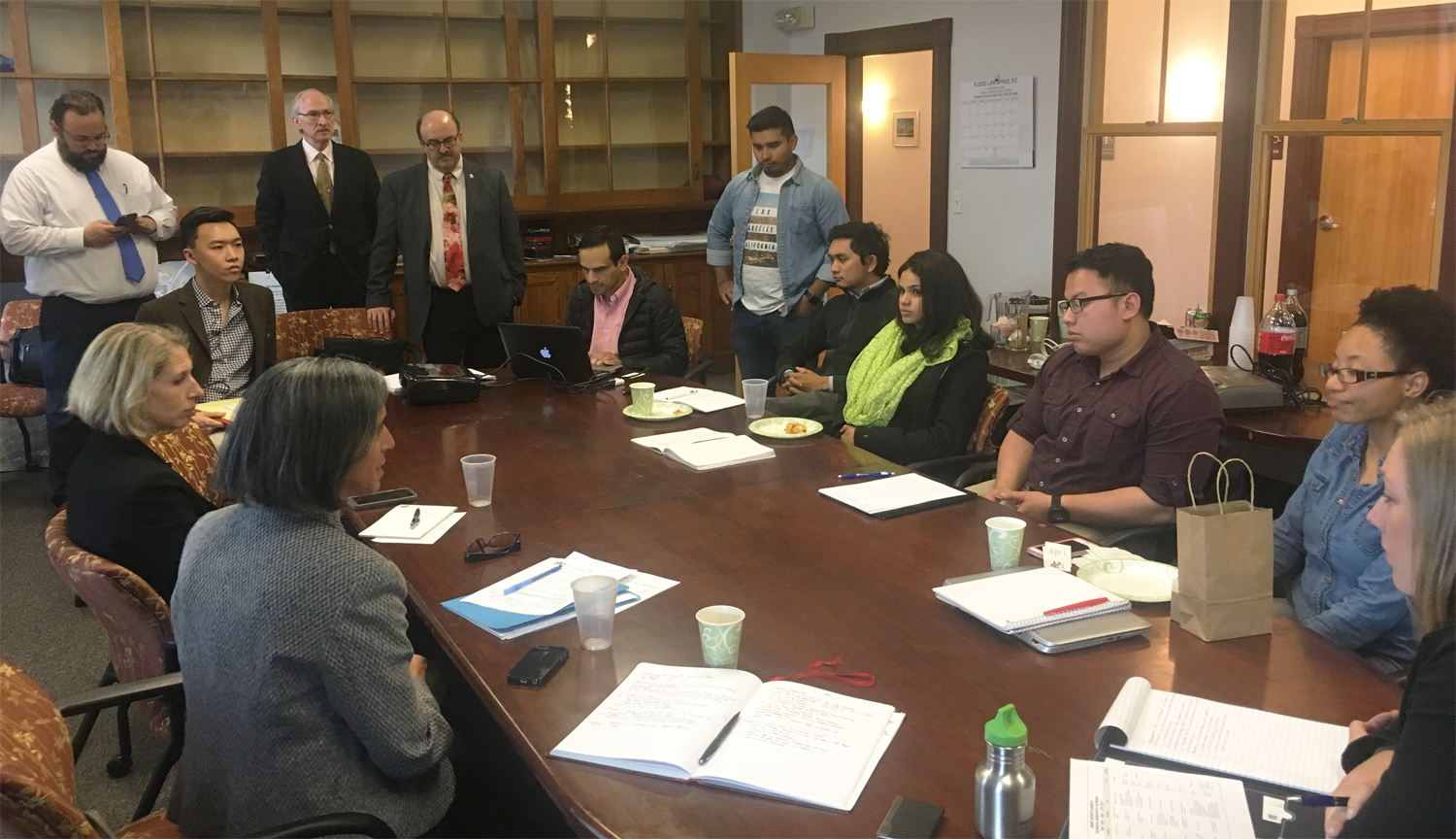
News
By Smart Growth America, July 13, 2017

If you think manufacturing still needs to be exiled to large, polluting, isolated factories, think again. Many of today’s manufacturing spaces are small, clean, shared among multiple firms, and integrated with other land uses. And communities across the country are creating space for these businesses in downtown neighborhoods, and making them part of a place-based approach to economic development.
Small-scale producers and manufacturers can boost local economies by creating new jobs for workers with a wide range of skill sets. When these companies are located in a downtown, however, their economic impact multiplies. These businesses can bring life to vacant industrial properties or storefronts and catalyze broader neighborhood investment. They can also help attract visitors by fostering a community of creative producers.
One great example of a city where this is happening is Lowell, MA, a former mill town with a small-scale manufacturing industry that’s ready to grow. Lowell’s Acre district, located downtown and adjacent to the University of Massachusetts campus, is home to gorgeous historic mills, many of which are now repurposed for other uses. Some have been subdivided into small production spaces, while others have been converted into multifamily units; one houses an interior streetscape of salvaged architectural storefronts, home to shops and boutiques of makers.

As demand and opportunity increase for locally-based, small-scale manufacturing businesses such as microbreweries, textiles, food production, and other crafts, Lowell has recognized the need to build an infrastructure that supports them. So the City asked Smart Growth America to help create a more robust environment for small-production businesses to locate throughout the Acre, and increase economic opportunities for all residents in the city. Our technical assistance program for Lowell was designed to build local capacity, support economic development and planning efforts, examine development challenges, assist in potential policy changes, and help coordinate among city agencies and partners.
Lowell has multiple locally owned banks that are actively seeking ways to invest in the city, specifically entrepreneurs. The city also has strong partners in the non-profit development community, who are actively thinking about job creation in the small-scale manufacturing sector for its target population. This type of small-scale business is moving into downtown and the Acre neighborhood, with a number of businesses settling into the area in just the last two years. Lowell is also well-positioned to attract entrepreneurs from nearby Cambridge and Boston, and brand itself as a regional maker-supportive hub by partnering with nearby cities such as Lawrence.

The Acre has always been one of Lowell’s most ethnically diverse neighborhoods, and has served as an immigrant entry point for more than one hundred years. Most recently, the large influx of Cambodian and Spanish-speaking populations have changed the demographic composition of the city as traditionally Irish, Greek, and French newcomers from earlier generations.
Lowell leaders recognize these trends as an opportunity, and are working to make sure any new development works for everyone. “We want to make sure our new arrivals feel as welcome in the Acre as families who have been here for generations,” said Shaun McCarthy of the Lowell Working Cities Challenge Initiative.
Part of ensuring this inclusivity as the Acre continues to grow is breaking down language and cultural barriers that can make existing programs difficult to access for Khmer and Spanish speakers. Many Acre residents were business owners in their country of origin, and can benefit quickly from access to these programs.
Lowell is strengthening its long-term economic resilience as the city and its partners continue to support the collection of these businesses in downtown and in the Acre. The city is building upon decades of successful programs that have actively promoted reinvestment in the downtown. Lowell is hitting its stride, and we’re excited to help them continue to reap the benefits through strategic investments in its downtown neighborhoods, businesses, and residents.
Related News

© 2025 Smart Growth America. All rights reserved
Site By3Lane Marketing












